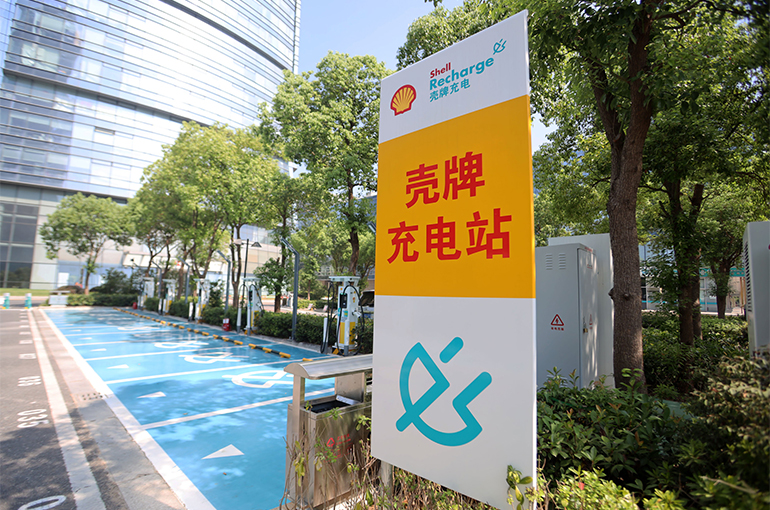 Shell Exits China's Power Market, But Sticks With EV Charging
Shell Exits China's Power Market, But Sticks With EV Charging(Yicai) May 9 -- Shell said the UK petrochemicals titan is pulling out of China’s power market, but will continue with its electric vehicle charging business in the country.
Shell’s exit from the power value chain in China, which includes its power generation, trading, and marketing businesses, began at the end of last year, the London-based firm told Yicai yesterday.
Fierce competition and thin profit margins in China's retail electricity market may be two key reasons for Shell's decision, according to analysts. In 2015, the country launched a new round of power sector reforms, allowing social capital to take part in the retail electricity sector.
Shell Energy China became one of the first registered foreign companies to enter the country's power trading market. But amid intensifying competition and homogenized business models in the domestic power market, the firm failed to achieve significant results.
The move is also believed to be a business adjustment in response to its new Chief Executive Wael Sawan prioritizing projects with higher profit margins, analysts pointed out.
Shell is also accelerating the development of its EV charging business. Last September, the company opened its largest EV charging station in the Chinese city of Shenzhen, and plans to have more than 500,000 charging stands worldwide by next year.
On the same day, Shell also announced that it has agreed to sell Shell Energy and its refinery and petrochemical assets in Singapore to a joint venture of Indonesian chemicals giant Chandra Asri Group and Swiss miner and commodities trader Glencore.
On Jan. 16, Shell said it will sell its Nigerian onshore subsidiary Shell Petroleum Development for USD1.3 billion to Renaissance, a consortium of four exploration and production firms in Nigeria and an international energy group.
Shell's strategic shift reflects the dilemma and choices international energy giants face between energy security and transition. While the oil major is still transforming, its focus is shifting toward return on investment, Zhu Kunfeng, energy research director at S&P Global Commodity Insights, said at an industry forum.
The energy shift needs to be aligned with the growth of new alternative energy sources, Zhu added.
Editor: Martin Kadiev